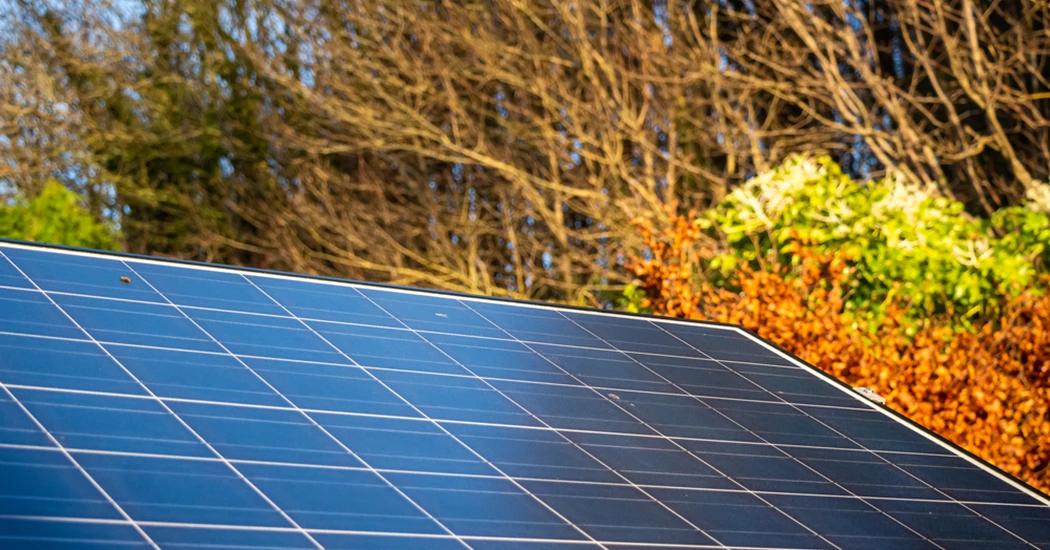A low carbon economy demands more from private investors
The urgency to combat climate change has never been more acute and in a post COP26 world we will need to continue to collaborate across traditional social, business, national and regional boundaries to drive change. To reach net zero as much as US $21 trillion in new investment in both mature and newer low-carbon technologies will be needed over the next ten years, according to the International Energy Agency (IEA).
Governments around the world are spending heavily on the effort. But approximately US $2.1 trillion will need to come from private investors: venture capitalists (VCs), private equity (PE) firms, corporate venture arms (CVAs), and financial institutions. This private capital provides crucial support to startups and growth-stage companies in developing and scaling innovative technologies.
Current technologies — including solar, wind and nuclear energy, biofuels, electric vehicles (EVs), and energy storage —will not be enough. Success depends on adding emerging, high-potential technologies like hydrogen power and carbon capture, utilization, and storage (CCUS) to our toolkit.
Private investment far short of what is needed
Unfortunately, according to a new study from Boston Consulting Group, private investment in low carbon technologies – especially the emerging potential game-changers – falls far short of where it needs to be. Key findings include:
Nowhere near enough private investment: From 2016 through the end of 2021, private investors will have poured $157 billion into mature and emerging low carbon technologies. Annual investment will almost double between 2020 and 2021, from $30 billion to a projected US $57 billion. But this is just a fraction of what is needed. To meet net zero targets, annual private investment must reach US $470 billion by 2030 – 8x current levels.
Substantial underinvestment in emerging, compared to mature, technologies: Over 90 percent of private investment since 2016 is in six comparatively mature technologies: electric vehicles (41 percent), energy storage (23 percent), solar energy (17 percent), wind energy (7 percent), nuclear energy (2 percent), and biofuels (1 percent). Investment in early-adoption and emerging technologies has grown from 1 percent of the total in 2016 to a projected 6 percent in 2021, indicating a step in the right direction but a long way to go. Especially since these technologies are projected to account for more than a third of emission reductions.
Substantial underinvestment in emerging, compared to mature, technologies: Over 90 percent of private investment since 2016 is in six comparatively mature technologies: electric vehicles (41 percent), energy storage (23 percent), solar energy (17 percent), wind energy (7 percent), nuclear energy (2 percent), and biofuels (1 percent). Investment in early-adoption and emerging technologies has grown from 1 percent of the total in 2016 to a projected 6 percent in 2021, indicating a step in the right direction but a long way to go. Especially since these technologies are projected to account for more than a third of emission reductions.
The mix and participation of private investors is changing: In the 2016-2021 period, CVAs and financial institutions accounted for two-thirds of the total investment, while VCs and PE firms made more deals at smaller dollar amounts. But the past year has seen VCs, PE firms and financial institutions almost doubling their total investments, with CVAs remaining flat. The VC and PE growth is especially positive. These players have a track record of supporting innovation and emerging technologies, delivering more than double the innovation returns of corporate R&D.
Corporations should invest more actively and broadly in young companies and new technologies: The opportunity is twofold - meeting emissions targets and pursuing business goals. Investing in a portfolio of young companies allows corporations to accelerate innovation while identifying potentially lucrative or game-changing new technologies early. To-date, however, 90 percent of CVA investment has flowed into EVs, energy storage, solar energy, and wind energy. VCs and PE firms have contributed almost two-thirds of the private investment into emerging technologies, compared to CVAs at less than 30 percent.
Sharp differences in CVA activity across industries: Industry sectors differ in their activity levels and focus, but all have shown a distinct preference for mature technologies and are only now beginning to diversify into newer options. Electric and electronics companies have invested most heavily in low-carbon technologies – US $9 billion since 2016 – but also concentrated their investments more than other industries in the top four technologies. Automotive companies have focused 90 percent of their investments in EVs and energy storage, but have recently started venturing into hydrogen and other new technologies. Technology company CVAs are also big investors in the EV space, with more recent activity in energy efficiency and carbon offset technologies, CCUS, and nuclear energy.
Until recently, oil and gas CVAs have lagged other sectors in their low carbon investments, with 76 percent of deals made since 2019. Unsurprisingly, most of their investments have been in mature renewable energy sources and energy storage. But they are showing interest now in newer technologies, with hydrogen and CCUS investments almost doubling since 2019.
This data is clearly a call to action – to private investors across the board, and to oil and gas CVAs in particular. No sector is as heavily and directly impacted by climate concerns and the energy transition. The industry must become leaders in the development of low-carbon technologies, champions of innovative expertise and possibilities.
Energy Connects includes information by a variety of sources, such as contributing experts, external journalists and comments from attendees of our events, which may contain personal opinion of others. All opinions expressed are solely the views of the author(s) and do not necessarily reflect the opinions of Energy Connects, dmg events, its parent company DMGT or any affiliates of the same.
KEEPING THE ENERGY INDUSTRY CONNECTED
Subscribe to our newsletter and get the best of Energy Connects directly to your inbox each week.
By subscribing, you agree to the processing of your personal data by dmg events as described in the Privacy Policy.

















